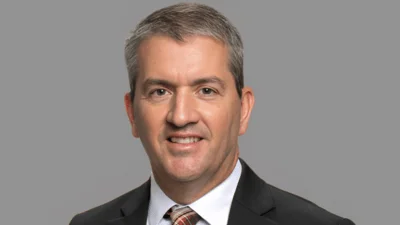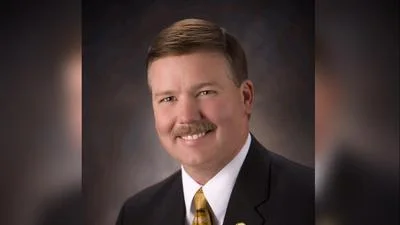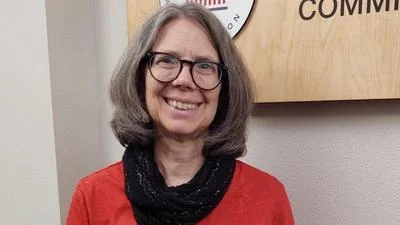Issued the following announcement on July 30.
Whole-Hearted Care
AdventHealth is working towards a day when heart disease is no longer the leading cause of death for women.
“It’s the number one killer in women because it often goes undetected,” said Destiny Howe, nurse manager of AdventHealth Gordon’s Cardiac Catheterization Lab.
But with the cath lab’s technology upgrades and additional service offerings rolling out late this summer, physicians can more conveniently find and fix their patients’ heart problems before they lead to coronary artery disease or heart failure.
“We can treat just about everything,” Howe said. “For the most part, we can ensure your Cardiac Care is complete when you come here.”
The hospital opened the new cath lab in February 2020 as part of its $24 million capital campaign to enhance services aimed at improving the overall health of the northwest Georgia community it serves.
“Patients can have a right, left or right and left heart catheterization done here at AdventHealth Gordon,” Howe said.
Chatsworth resident Kim Curtis had both in early December after she started experiencing “a suffocating feeling,” wheezing and coughing and went to her Primary Care physician.
“I was having some difficulties with my breathing, and whenever I would take breaths, I was coughing pretty bad,” she said.
Because Curtis, 43, has a family history of congestive heart failure and was also experiencing chest, neck and arm pain, her doctor did an echocardiogram, a test that uses sound waves to show the size and shape of a person’s heart to determine whether it’s pumping blood the way it should.
The test showed her right ventricle, the lower chamber of the heart which pumps blood to the lungs so it can be oxygenated, was enlarged, so she was referred to Charlie Baggett, MD, a cardiologist at Harbin Clinic, who scheduled her for a cardiac catheterization at the AdventHealth Gordon cath lab.
The minimally invasive diagnostic procedure can determine whether one or more of the arteries that supplies blood to the heart is blocked or narrowed. During the procedure, the doctor inserts a small plastic tube — the catheter — into the groin or arm and threads it to the coronary artery. X-ray dye is then injected into the artery while high-speed X-rays are produced. The doctor can then examine the X-rays to diagnose patients and determine the best treatment options.
“The main fear was pulmonary hypertension,” Curtis said, referring to a type of high blood pressure that affects the arteries in the lungs and, if untreated, can lead to heart failure.
Dr. Baggett also wanted to check the pressure of the blood flow through the heart, as well as look for blocked arteries during the procedure.
“They were able to determine the pressures were where they need to be, so that was good,” Curtis said.
The catheterization also ruled out pulmonary hypertension and determined her arteries were free of blockages that could potentially cause a heart attack or other more critical heart problems in the future.
“Had they found a blockage, they were prepared to get it cleared,” Curtis said.
Howe said Curtis was one of 326 diagnostic catheterizations completed in 2020 at the cath lab. Catheterization can also be used with other interventional procedures to close holes in the heart, repair or replace heart valves and treat irregular heartbeats.
“We do not want a patient to have to wait until they’re having chest pain or a cardiac event. Time is muscle,” she said. “There are more sophisticated medications and procedures that can be done before the heart gets so sick that it needs invasive surgery.”
In August, two-full time cardiologists will join the specialized cardiac nursing and technician teams already staffing the cath lab.
“We will be offering 24-7 emergency Cardiac Care,” Howe said.
The cath lab will also begin performing Percutaneous Coronary Interventions (PCI). A PCI improves blood flow in patients who are experiencing a buildup of fats and cholesterol, known as plaque, in parts of the heart. During the procedure, the cardiologist uses the catheter to place a stent in the heart to open up the narrowed blood vessels.
The cath lab is also being outfitted with cutting-edge technology that will allow physicians to use ultrasound-guided tools to measure the heart vessels so the stent can be precisely sized and inserted.
“Patients will no longer have to be transferred [to other hospitals] to have blockages fixed if we find them,” Howe said. “When they come to see us, we’re going to be able to treat their issues completely.”
Physicians will also have access to new, state-of-the-art platforms to remotely read test results. In addition to cardiac catheterization, calcium scoring and transesophageal echocardiography, the cath lab offers exercise testing, stress testing, Holter monitoring to detect abnormalities in heart rhythm while patients go about their daily routines and other cardiovascular screenings.
“We have new defibrillators and connectivity for all EMS vehicles so they are able to go into the field and recognize whether a patient is having an acute heart attack and immediately transmit the images to the Emergency Department and interventional staff,” Howe said. “That technology is a game-changer.”
The cath lab’s six bays are designed as private spaces where patients are prepped and recover. Within view of the nurses’ desk, each one is outfitted with heated blanket warmers, televisions and space for family members to visit. There is also a large family lounge and a new MRI and control room with a dedicated patient waiting and changing space.
While the lab isn’t equipped to handle open heart surgeries, Howe said the facility has partnerships in place with cardiology teams at other regional medical centers and can safely transfer patients needing that level of care.
“AdventHealth Gordon is a 69-bed hospital, so for the tens of thousands of people who live in Gordon and Murray County, not having to drive an hour for that care will be life-changing,” she said. “They will not have to look anywhere else.”
Curtis said she didn’t even consider going to any other facility.
“In my region, you could very well go to Atlanta or Rome or Chattanooga, so you really have a lot of choices,” she said. “The main reason I went to AdventHealth is you hear of what they’re doing and all the advances and their forward-thinking. They have the skilled doctors and they have the state-of-the-art equipment. I also think you should give back to your community by utilizing the folks in your community.”
Curtis was also impressed by the lengths the cath lab staff went through to ensure she had a positive experience. They worked late into the night before the day of her procedure to get insurance approval.
“Most others would have rescheduled,” she said.
On the day of the procedure, their safety protocols and calming, upbeat demeanor gave her peace of mind.
“The team there was just amazing,” Curtis said. “They were telling me what they were doing and explaining everything. I was super, super nervous, but they were professional, and their personalities made it so much easier to get through.”
Her nurse, Sonja Wright, never left her side during the portion of the procedure she wasn’t able to be sedated for.
“They were working on me, and I was well aware of everything in the room,” she said. “It’s a scary feeling, but I will tell you, she was just a blessing. She was beside me and saying, ‘The doctor’s doing this. He’s going to push this through. You’re going to feel this.’ Everything they were doing was so professional.”
She also praised the way Wright handled her post-procedure care after she went home.
“When she talked to me, it was almost like I was talking to one of my really good friends or a cousin,” Curtis said. “The sympathy and empathy towards me were top-notch.”
Howe said top-level administrators at AdventHealth Gordon challenge one another and everyone who works in the hospital to regularly consider how the community is healthier because of the services they offer.
“I have that question on a sticky note on my computer, and I look at it every day,” she said. “That’s what drives me when I make any decision. How are the people around us going to be so much healthier because we come to work every day?”
She said patients should expect excellence and personalized, quality, whole-person health care when they turn to AdventHealth.
“I firmly believe zip codes should not dictate the care you should get,” she said.
Longer-term plans include expanding similar Cardiac Care services to AdventHealth’s sister hospital in Murray County, she said.
“Patients can be assured we are going to be with them every step of the way and care for them with kindness and compassion,” she said. “We have worked very hard to increase the excellence of the care.”
Original source can be found here.





 Alerts Sign-up
Alerts Sign-up